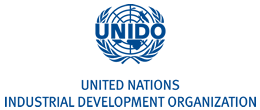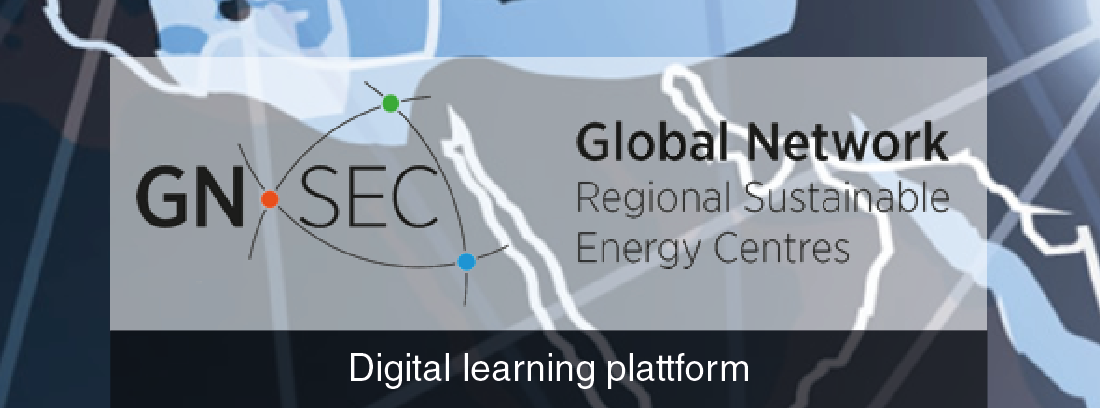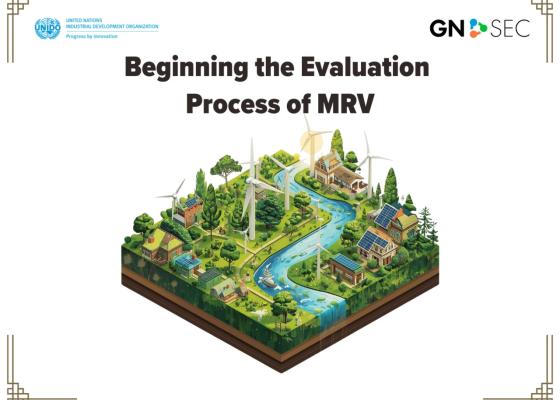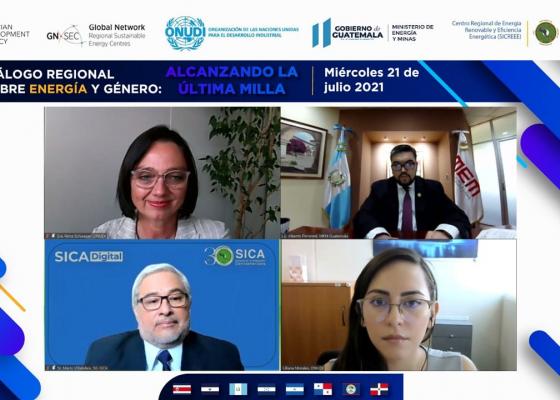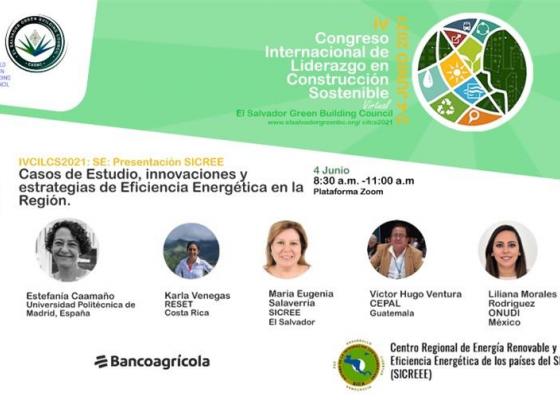SICREEE’s Thematic Hubs
What are the Thematic Hubs?
They are a composition of national and regional institutions, as well as experts in a particular area or topic in the energy sector. The participants in the Thematic Hubs are the private sector, academics, NGOs and civil society, which coordinate among themselves the different topics of interest.
What is the goal of the Thematic Hubs?
They serve as coordination centers for the development of regional programs and/or projects, which allow the mobilization of resources to finance different initiatives in the Central American region. The Thematic Hubs represent a cooperation mechanism among the countries for the exchange of ideas, knowledge and experiences that permits the creation of initiatives within the energy framework for national and regional development. The Hubs encourage the active participation of experts from different areas of knowledge for the formulation and recommendation of public policies, the development of investment strategies and capacity building.
Energy access Hub
OLADES’s data from 2019 demonstrate that 8% of the population of the SICA member countries did not have access to electricity services, which represents more than 4.5 million people without access to electricity service in the region and 38% of the population in Latin America. By countries, the most critical situation is faced by Honduras (15.0%), Belize (8.6%), Guatemala (8.4%) and Panama (6.2%), followed by countries such as Nicaragua (2.8 %), El Salvador (2.4%), Dominican Republic (2.1%) and Costa Rica (0.6%). However, and although these last numbers seem positive, in the region, these are areas with the most difficult access and the last mile.
The energy access represents a key factor for the development, economic and social growth of communities, as well as to promote gender equality and the empowerment of women. The contributions that energy provides are decisive for the improvement and the quality of life of all the people.
Women are the most affected by the inadequate supply of fuel for cooking and by the dependence on traditional energy such as firewood, particularly in rural settings. In the poorest and most marginalized households, firewood is the main fuel for cooking. Women and girls are responsible for collecting it, for which they must walk long distances and expose themselves to all kinds of threats. The time they use for this task reduces their time available for other productive activities such as studying. Women who do not have access to clean cooking sources are the most affected in these communities.
For SICREEE it is clear that access to electric energy and clean fuels contribute to the well-being, progress and health of all communities without access to a basic service such as energy. In remote and rural areas, the use of renewable energy resources will allow, for instance, the creation of new entrepreneurships, access to education and the generation of employ to improve the living conditions.
Therefore, SICREEE support will focus on improving the access to sustainable energy services adapted to the local environment, social factors and promoting a higher empowerment of women. At the same time, it will seek private sector participation to take advantage of the existing market potential for mini grids and some other technologies (second or third generation home systems) to build solutions adapted to the population needs. This will come together with a training program at the local level to facilitate the identification of the most appropriate technologies and the construction of projects under the sustainability approach.
Gender and Energy HUB
Incipient progress is achieve in the SICA member countries to promote a real gender equality, and there is much to be done yet. On issues such as access to basic services, education, work, health and income, among others, women in the region face barriers to achieve their development, due to the simple fact of their gender and the traditional roles acquired or imposed by society.
These barriers make women not having and adequate representation in the management processes of the energy sector and in economic and political decision-making. Women marginally obtain the benefits of economic growth and face big challenges to overcome poverty.
SICREEE has among its areas of work the promotion of socioeconomic opportunities for women based on energy solutions, in two dimensions, the production and consumption of energy. With the support of UNIDO, an organization which promotes the gender equality as a fundamental axis of the just and inclusive energetic transition, the centre intends to support and strengthen the leadership and participation of women in the energy sector, as well as to promote a higher implementation of clean technologies in rural areas of the region.
Among the activities of SICREEE, there is the support to the governments and partners in the region, so they include in their programs the issue of gender equality and in this way reduce the barriers faced by women and girls to overcome inequality. In addition, it includes support on gender policy and strategy issues, to government entities and electricity companies that want to diversify their workforce to incorporate more women into their institutions and that seek to encourage the economic and political leadership of women. The development of mentoring programs and projects that promote the active participation of women, beyond their traditional roles, is another fundamental aspect of the Centre's action strategies.
Next Thematic Hubs

